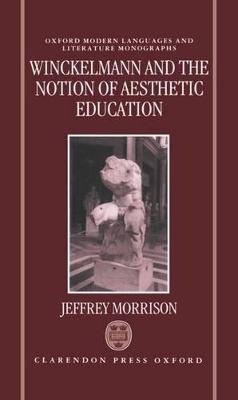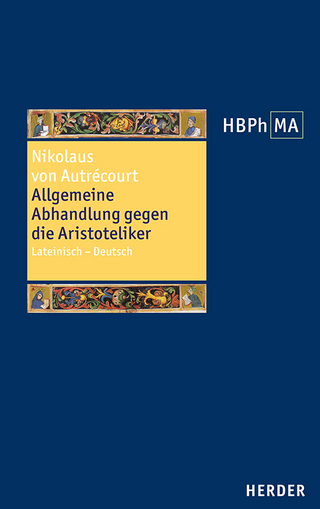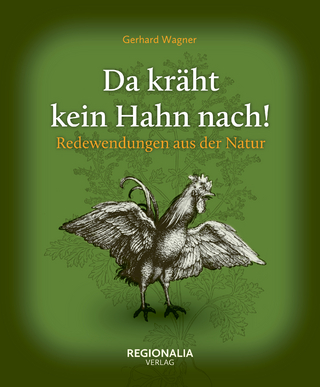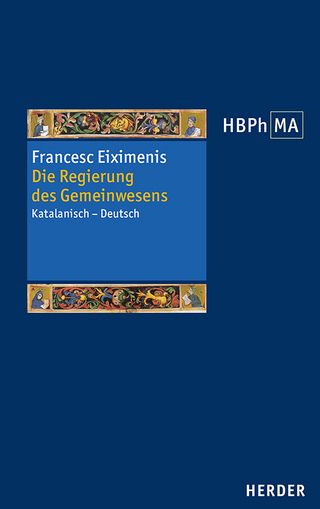
Winckelmann and the Notion of Aesthetic Education
Seiten
1996
Clarendon Press (Verlag)
978-0-19-815912-4 (ISBN)
Clarendon Press (Verlag)
978-0-19-815912-4 (ISBN)
This work deals with the process of aesthetic education, as defined by Winckelmann on the basis of his own experience of art and as applied to his teaching of two pupils. A number of crucial difficulties are revealed, not least because Winckelmann's teaching programme does little justice to his insights, which were later appreciated and, in some cases, reproduced by Goethe.
This book examines the pivotal role of Johann Joachim Winckelmann as an arbiter of classical taste. It identifies the key features of Winckelmann's treatment of classical beauty, particularly in his famous descriptions, and investigates his teaching of the appreciation of beauty. The work identifies and examines the point at which theory and descriptive method are merged in a practical attempt to offer aesthetic education. The publications and correspondence of Winckelmann's pupils are offered as criteria for judging the success of his mission, eventually casting doubt upon his concept of aesthetic education, both in theory and practice.
The final chapter of the book is concerned with Goethe's reception of Winckelmann, which shows unusual sensitivity to his work's aesthetic core. It also shows how Goethe's own writing on Italy reveals a process of independent aesthetic education akin to Winckelmann's and distinct from his pupils. The work is founded in close textual analysis but also covers the principles of the aesthetic education, the value of the Grand Tour and the role of Rome in the European imagination.
This book examines the pivotal role of Johann Joachim Winckelmann as an arbiter of classical taste. It identifies the key features of Winckelmann's treatment of classical beauty, particularly in his famous descriptions, and investigates his teaching of the appreciation of beauty. The work identifies and examines the point at which theory and descriptive method are merged in a practical attempt to offer aesthetic education. The publications and correspondence of Winckelmann's pupils are offered as criteria for judging the success of his mission, eventually casting doubt upon his concept of aesthetic education, both in theory and practice.
The final chapter of the book is concerned with Goethe's reception of Winckelmann, which shows unusual sensitivity to his work's aesthetic core. It also shows how Goethe's own writing on Italy reveals a process of independent aesthetic education akin to Winckelmann's and distinct from his pupils. The work is founded in close textual analysis but also covers the principles of the aesthetic education, the value of the Grand Tour and the role of Rome in the European imagination.
| Erscheint lt. Verlag | 8.8.1996 |
|---|---|
| Reihe/Serie | Oxford Modern Languages and Literature Monographs |
| Verlagsort | Oxford |
| Sprache | englisch |
| Maße | 145 x 225 mm |
| Gewicht | 489 g |
| Themenwelt | Kunst / Musik / Theater ► Allgemeines / Lexika |
| Kunst / Musik / Theater ► Kunstgeschichte / Kunststile | |
| Geisteswissenschaften ► Philosophie ► Philosophie des Mittelalters | |
| Geisteswissenschaften ► Sprach- / Literaturwissenschaft ► Anglistik / Amerikanistik | |
| Sozialwissenschaften ► Pädagogik ► Allgemeines / Lexika | |
| Sozialwissenschaften ► Pädagogik ► Bildungstheorie | |
| ISBN-10 | 0-19-815912-9 / 0198159129 |
| ISBN-13 | 978-0-19-815912-4 / 9780198159124 |
| Zustand | Neuware |
| Haben Sie eine Frage zum Produkt? |
Mehr entdecken
aus dem Bereich
aus dem Bereich
Lateinisch - Deutsch
Buch | Hardcover (2024)
Herder (Verlag)
70,00 €
Redewendungen aus der Natur
Buch | Hardcover (2024)
Regionalia Verlag
7,95 €


